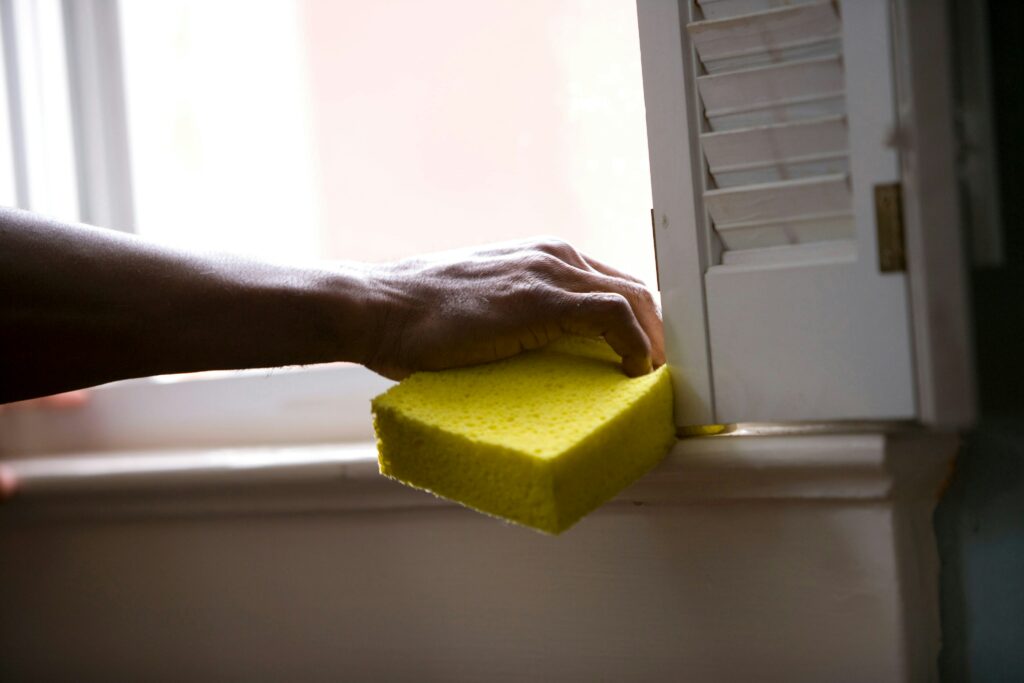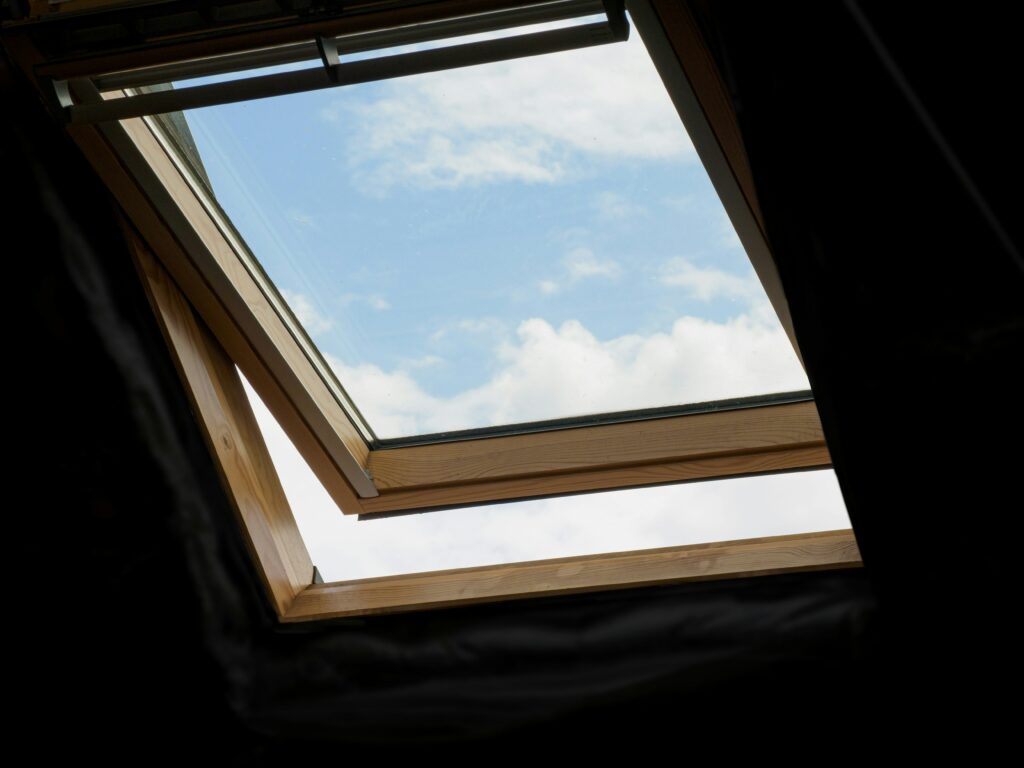Clean windows are more than just a visual enhancement to your property. They influence natural light, energy efficiency, and the overall maintenance of your home or commercial building. But one common question property owners often ask is: how often should you clean your windows?
In this guide, we break down the timing and frequency of window cleaning based on a range of practical factors, from weather to window type to regional conditions in places like Grand Rapids and Holland, MI.
What You’ll Discover in This Guide
- Why Regular Window Cleaning Matters More Than You Think
- How Weather, Location, and Usage Impact Your Cleaning Schedule
- Seasonal Insights for West Michigan Homeowners
- Commercial Versus Residential Window Cleaning Needs
- Signs It’s Time to Clean Your Windows
- How to Maintain Clean Windows Between Services
- Choosing the Right Window Cleaning Company
The Importance of Routine Window Cleaning
Window cleaning is not just about keeping your property looking nice, although clean glass certainly improves the appearance of any home or business. More importantly, maintaining your windows on a regular basis helps protect their condition and ensures they continue to function properly.
As time passes, windows accumulate dust, pollen, pollution, and other airborne particles. In areas with variable weather conditions like Grand Rapids and Holland, moisture can mix with these particles to create a stubborn film that clouds the glass. If not removed, this buildup can lead to permanent staining or even etching of the glass surface.
Keeping your windows clean helps preserve their clarity and integrity. Regular cleaning reduces the risk of scratches, discoloration, and damage to frames or seals. This is especially important for windows with specialized coatings or double-pane construction, where cleanliness affects both appearance and performance.
For residential properties, clean windows allow more sunlight to enter, making interior spaces brighter and more comfortable. Natural light contributes to better mood and energy levels, and it can also reduce the need for artificial lighting during the day.
For commercial buildings, spotless windows send a strong message to clients and visitors. They communicate that the business cares about its image and pays attention to detail, which can influence how customers perceive the overall quality of services or products offered.
Overall, keeping your windows clean on a consistent schedule is a smart way to protect your investment, improve daily comfort, and maintain a welcoming atmosphere both inside and out.
Weather, Geography, and the Frequency Formula
West Michigan experiences a broad spectrum of weather conditions that can all impact how often your windows need cleaning. Heavy pollen in the spring, humid and buggy summers, leaf-shedding trees in the fall, and the salty slush of winter all contribute to the gradual buildup of grime, film, and environmental residue on glass surfaces. These regional factors make window cleaning a part of regular property care.
Here’s how specific environmental conditions influence how frequently your windows should be cleaned:
- Near busy roads or construction areas: If your home or business is located close to major streets, intersections, or active construction zones, your windows are likely exposed to a high volume of dust, vehicle emissions, and airborne debris. These particles not only cloud your view but can also become abrasive, causing scratches or stains if not removed regularly.
- Close to lakes or forests: Living near natural elements like Lake Michigan or dense wooded areas in Rockford or Forest Hills comes with its own set of challenges. You may encounter higher amounts of tree sap, bird droppings, pollen, and windblown soil. Moisture in these areas can also encourage mold or mildew growth along window frames if not addressed.
- Seasonal changes: Seasonal transitions, particularly in spring and fall, tend to demand more frequent cleanings. Spring pollen, combined with rain, creates a sticky film on windows that can attract insects and dust. In the fall, shedding leaves and increased winds can leave sills clogged and glass coated with dirt and organic material. These changes make quarterly or seasonal cleanings especially beneficial.

So, how often should you clean your windows? As a general guideline:
- Residential properties: Aim for professional cleaning every 3 to 6 months. Homes in high-exposure zones (like wooded or high-traffic areas) may require more frequent cleanings to maintain clear views and prevent buildup.
- Commercial buildings: Especially storefronts or customer-facing properties, benefit from a tighter schedule—ideally once per month or every other month. Clean windows help convey professionalism and attention to detail, which is essential for maintaining strong first impressions.
Tailoring your cleaning routine to your surroundings not only ensures a better-looking property but also helps protect your windows from long-term damage.
How Often Should You Clean Your House Windows?
For homeowners in Grand Rapids, Holland, or Forest Hills, the optimal frequency usually falls into this rhythm:
- Every 3–4 months for exterior windows
- Twice a year for interior windows (spring and fall)
- Quarterly if surrounded by trees or exposed to traffic
If you’re noticing frequent smudging, hard water stains, or diminished natural light, it’s likely time for a cleaning. Residential homes near the lake or in wooded areas like Rockford, MI, often require more regular maintenance due to environmental factors.
Seasonal Considerations in West Michigan
West Michigan’s varied climate plays a significant role in how often and how thoroughly windows need to be cleaned. Each season brings specific challenges that can affect the clarity and condition of your glass surfaces. Understanding these patterns can help homeowners and business owners stay ahead of buildup and damage.
Spring
Spring is one of the most critical seasons for window cleaning. As snow and ice melt away, they often leave behind mineral deposits, road salt, and other residue on lower window panes and sills. Additionally, pollen from trees and flowers begins to coat exterior surfaces, leaving a yellowish film that not only affects visibility but can also trigger allergies when windows are opened.
This time of year is ideal for a thorough exterior cleaning to remove accumulated grime from the winter months. For properties surrounded by trees or near wooded areas, spring cleaning is especially important to remove pollen and sap before it has a chance to harden and cause long-term staining.
Summer
Summer brings a different set of concerns. Increased insect activity can lead to a buildup of bug debris on both windows and screens. Homes with irrigation systems may notice hard water stains from sprinklers, which can be particularly difficult to remove if left untreated. The sun also exposes every streak and smudge, making window clarity even more noticeable.
Because summer days are longer and dryer, it’s a great time for mid-year maintenance. While not always necessary for a full cleaning, this season is perfect for touch-ups or quick refreshes, especially for homes that host outdoor gatherings or businesses that rely on strong curb appeal.
Fall
Fall introduces challenges related to decaying plant matter and early frost. Leaves, acorns, and debris often settle in window sills and frames, leading to blockages or mold growth if not removed. Windy days can blow dust and dirt against windows, while fluctuating temperatures create condensation that may leave streaks or encourage mold on interior surfaces.
A thorough fall cleaning prepares your windows for the harsher months ahead. It also removes organic debris that, if left to sit through the winter, can stain glass or damage frames. For Michigan properties near forests or large trees, this season often requires extra attention.
Winter
Although winter may seem like an off-season for window cleaning, it’s still important to monitor your glass for issues. Snow, sleet, and road salt can accumulate on lower windows, especially on commercial properties or homes close to main roads. These substances not only reduce visibility but can also damage seals and corrode metal frames if not cleaned promptly.
While full-service cleanings might be limited by weather, mild winter days or thaws offer good opportunities for spot cleaning. Preventing buildup now can make spring-cleaning much easier and help avoid long-term damage caused by frozen grime or salt exposure.
Spring and fall remain the most beneficial times for deep cleaning windows, thanks to their transitional nature and the buildup they leave behind. Summer is best for light maintenance, and winter calls for attentive monitoring and occasional spot cleaning when conditions allow. Adjusting your window care routine to align with the seasons ensures your home or business maintains a clear, welcoming appearance all year long.

Understanding Commercial Window Cleaning Needs
Commercial properties, especially those with customer-facing spaces, should have a tighter cleaning schedule. Frequent cleanings reflect professionalism and attention to detail.
- Storefronts: Monthly to bi-monthly
- Offices: Quarterly
- High-rises or large complexes: Bi-annually with additional spot cleaning
Businesses in downtown Grand Rapids or areas like Byron Center benefit from maintaining a clean and inviting facade year-round.
Recognizing the Signs: When Your Windows Need Immediate Attention
Waiting for a scheduled cleaning might not always be enough. Here are signs it’s time to clean your windows sooner than planned:
- Obvious smudges or water spots
- Diminished natural light indoors
- Streaks after rainfall
- Increased allergy symptoms (from trapped dust or pollen)
- Condensation or fog between panes
- Insect webs or nests near window frames
- Mold or mildew around sills and tracks
- Dust buildup visible from the outside
- Difficulty opening or closing windows
- Windows appear dull or hazy even after wiping from the inside
If you notice any of these signs, a quick appointment with a professional service can restore your clarity and comfort.
DIY Maintenance Between Professional Cleanings

While hiring a professional window cleaning service ensures a deep, streak-free clean, regular maintenance between appointments can help extend the results and reduce buildup. With just a few simple practices, you can keep your windows looking clearer for longer, minimizing the need for frequent full-service cleanings.
Use a microfiber cloth and a vinegar-water solution for spot cleaning
One of the most effective ways to handle everyday smudges or light dust is with a homemade cleaning solution. Mix equal parts white vinegar and water in a spray bottle and apply it to the glass. Then, use a clean microfiber cloth to gently wipe the area. Microfiber is ideal because it lifts dirt without leaving lint behind and is soft enough to avoid scratching the surface.
This method works well for quick touch-ups, especially on interior windows where fingerprints, smears, and light grime tend to accumulate.
Avoid using newspaper, as modern ink may streak
While using newspaper was once a popular DIY cleaning method, today’s paper and ink formulas can actually leave residue or even scratch delicate coatings on your windows. It’s safer to stick with microfiber or soft cotton cloths, which provide better results without the risk of damage or smudging.
Clean window screens and sills to prevent dust and dirt transfer
Even if your windowpanes are clean, dirty screens and sills can quickly undo your work. Screens, in particular, trap dust, pollen, and debris that can blow onto the glass or inside your home when windows are open. Remove screens and rinse them gently with a hose or wipe them down with a damp cloth. Sills should be wiped clean regularly to remove dead insects, leaves, and dirt.
Keeping these parts clean not only improves the appearance of your windows but also helps with airflow and allergen reduction inside your home.
Trim nearby shrubs or trees to reduce debris and staining
Vegetation around windows may offer shade and curb appeal, but it also contributes to debris buildup. Overhanging branches can drop sap, leaves, or bird droppings onto your windows, while dense shrubbery can trap moisture and reduce airflow, leading to mold growth. Regularly trimming back trees and bushes near windows reduces the amount of natural material that can stain glass or clog sills and tracks.
Create a simple cleaning schedule to stay ahead of buildup
Rather than waiting until windows look noticeably dirty, build light window maintenance into your monthly cleaning routine. A quick once-over every few weeks, especially in high-touch or high-traffic areas, can make a significant difference in preserving that just-cleaned look.
Taking these small steps between professional cleanings can go a long way in protecting your investment. Not only will your windows stay clearer longer, but you’ll also prevent potential damage and enjoy a brighter, more inviting space every day.
Choosing a Professional Service
Not all cleaning services are created equal. Look for companies that offer:
- Regional expertise and understanding of local weather patterns
- Experience with both residential and commercial properties
- A satisfaction guarantee
- Eco-friendly cleaning products
- Proper insurance and licensing
- Transparent communication and clear scheduling
- Positive reviews and testimonials from local customers
- Well-maintained, professional-grade equipment
- Safety protocols for working on multi-story buildings
- Customizable service plans based on property needs
- Clear policies on rescheduling and weather-related delays
These qualities indicate a service provider that values both safety and customer satisfaction, which are critical factors when inviting professionals to care for your home or business.
A reputable window cleaning company like Absolutely Clean Services, serving Grand Rapids, Rockford, and window cleaning in Holland, brings the tools, techniques, and local knowledge necessary for a thorough, streak-free finish.
Final Thoughts: Keeping Your View Crystal Clear

The ideal window cleaning schedule varies based on your location, building materials, and lifestyle needs. Factors such as nearby vegetation, weather exposure, and how often windows are used all play a role in determining when they should be cleaned. While some properties may require frequent attention, others might only need seasonal maintenance.
Whether you live in a wooded neighborhood or operate a storefront in a busy part of town, establishing a consistent routine can protect your windows, enhance your space with more natural light, and reduce long-term wear. Professional cleanings paired with basic upkeep between appointments offer the best results for clarity and longevity.
Ultimately, your home or business benefits most when regular maintenance is guided by the answer to the question “how often should you clean your windows?”, using the answers that have been provided above.
